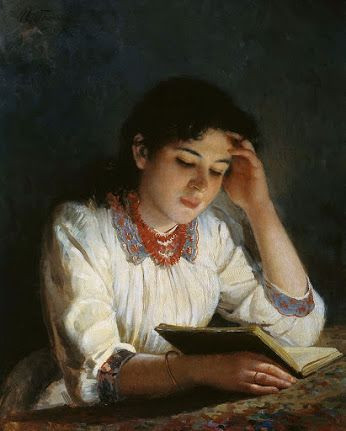Blast from the Past: This blog first posted October 31, 2014; and was reposted on May 9, 2018. Over past week or, I've been hearing a lot of grumbling about and a lot of promotion of balanced literacy. Here's a reminder of my thinking on the matter. I hope it is a good reminder of why it is important to place kids' needs above teacher desire.
Want to win an argument about literacy? Just claim your approach is “balanced.”
Balanced is an affirmative term… That’s why Fox-News claims to be “fair and balanced.” It not only makes your position sound reasonable, but implies your opponents may be a bit off, you know, imbalanced.
It is not too surprising that school principals and district literacy leaders often tout their reading programs as balanced.
“Balanced literacy” sounds great, but what does it mean? What is being balanced?
A few weeks ago, I responded here to some arguments about reading instruction that had appeared on the Washington Post website. One of the participants in that argument, a school principal I believe, was arguing that balanced literacy referred to the balancing of text difficulty.
I’ve heard balanced literacy promoted as a balance of textbooks and trade books, reading and writing, phonics and comprehension, motivation and teaching, and several other pairings, but challenging and easy text was a new one on me.
That’s one of the cool things about balance… you can tailor what is being balanced to your audience. If you’re meeting with the NAACP, you can tell them that you have a “balanced literacy” program, and when they ask what that is, you can look down your nose and answer (as if everybody knows), “it means that we balance the literature selections by White and Black authors.” They’ll love it.
The same ploy will probably work at the NOW convention.
And, Common Core? It asks for 50-50 coverage of literature and informational text. So CCSS is a set of “balanced literacy standards.” Oh me, oh my.
The term “balanced literacy” was coined by the late Michael Pressley. He even published a book on it, during the “reading wars.” Michael was a proponent of phonics (he was an author of the Open Court reading series at the time), but he wanted to heal the great divide between people like him and Whole Language advocates. His felt that we needed to balance the demands of the two groups.
He supported the explicit teaching of decoding but believed the Whole Language folks were right when it came to motivation. He took it that Whole Language was all about or mainly about getting kids interested in reading.
He didn’t see balanced literacy as simply a political compromise between two warring camps, but as an acknowledgement about what each group had right. He himself had conducted observational studies in high success classrooms and was amazed at how motivational the teachers were (Michael, a psychologist who had never taught children or spent much time in classrooms before this, so his amazement is understandable).
Of course, Whole Language advocates didn’t love this compromise at the time—let’s face it, they saw their position as being more than the dessert after the vegetables. And, many of my explicit teaching colleagues still see it as a way of avoiding sufficient amounts of explicit teaching.
I’m probably more in the camp of the basic skills folks than the whole language ones, but not rabidly so. One school I know adopted my literacy framework (2 hours of literacy instruction each day divided equally among word knowledge, fluency, reading comprehension, and writing), but then added an extra 30 minutes dedicated to motivating kids to be lifelong readers. This included time for teacher reading to kids, student self-selection, book clubs, and other activities and discussions aimed at promoting literacy.
I had no problem with that, but I don’t see it as balanced. The two hours of explicit instruction and guided practice is supported by research and has been found to benefit kids. The motivational efforts, whether good or bad, are on thin ice when it comes to evidence that they work. I accepted that compromise as reasonable because it didn’t interfere with a heavy dose of effective teaching. Too often it does.
Unfortunately, “balance” these days tends to mean a minimum of substantial systematic explicit instruction in phonological awareness, phonics, vocabulary, spelling, handwriting, oral reading fluency, reading comprehension, or writing. Studies show convincingly that explicit teaching of these things is beneficial in moving kids forward in literacy learning and the idea of balancing these essentials against anything else just because someone likes whatever else may be is irksome.
It’s time that we retire “balanced literacy,” focusing less on ideological and rhetorical gamesmanship and more on what has been found to actually help kids to become better readers.







Comments
See what others have to say about this topic.